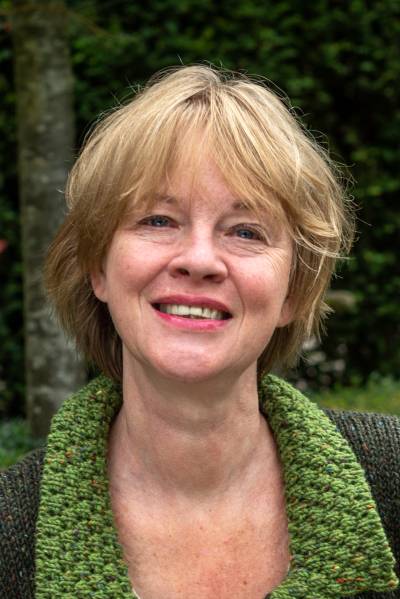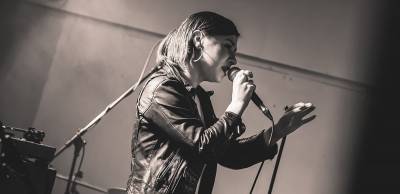Lucy is Emerita Professor of Music Education at IOE, UCL's Faculty of Education and Society.
What is your role and what does it involve?
As Emerita, I am no longer officially teaching at IOE, although I still keep up with many of my previous students and other scholars, and I do have a few students elsewhere.
During the nearly 30 years I was teaching at IOE, I worked across the board: on Initial Teacher Education, which included the Primary Music Education PGCE core and option courses that ran at the time, and the Secondary Music Education PGCE course, as well as a course all PGCE tutors used to work on, which involved students from outside our own subject area; on a B.Ed. and Diploma in Music Education which used to exist; on short courses for in- service primary and secondary teachers; and on the Music Education MA, of which I was Course Leader for about 12 years; and I also supervised a large number of doctoral students.
What attracted you to take up your position at IOE?
It was the work of the first Professor of Music Education, Keith Swanwick, who was appointed in the 1970s; plus the fact that the then-Institute of Education had the only Master's in Music Education that existed in this country at the time. Funnily enough, I wasn’t able to apply to that course, because you had to have two years’ classroom experience first, and I was so fired up that I just wanted to get on with my research straight after my Bachelor’s.
So I did a Master's in Music, followed by a Doctorate at the University of Sussex, with one supervisor in music and the other in education. I studied Keith’s work during that time, and was both provoked and hugely impressed by it. In my first book, which was a re-write of my doctoral thesis, I had dared to make a few criticisms of his perspectives, and by doing that I thought I might have wrecked my chances of ever working with him at IOE. But I wrote what I believed to be relevant and true. Keith, of course, was a bigger man than I had feared: he welcomed my criticisms in the constructive spirit they were meant.
I felt so unbelievably fortunate to get my dream job here in 1990, whilst very heavily pregnant with my first child.
How long have you been at IOE?
So I started in 1990 as a Lecturer, then Senior Lecturer, Reader, as it used to be called, then full Professor in 2005, and became Emerita in 2017.
What do you most enjoy about your position and why?
I feel so fortunate to be a part of UCL IOE. It has enabled me to meet and work with students and colleagues from all over the world. An incredible opportunity.
Even though I am no longer teaching, I am still in touch with various colleagues here. I sit on the Editorial Boards of numerous journals too, and that’s great because I get to read research before it’s published. A perfect way to keep up to date with the latest work in the field.
When I became Emerita, I took a break from doing any research myself for a few years, partly due to family health problems, and partly due to my own exhaustion. I would still have found it invigorating to follow up on a new idea, design a project, and collect data, but it was the writing that really finished me off. I needed a break. And I didn’t have any new ideas. Then one came to me after 5 years of rest, and I am now tentatively re-entering the research fray, working with my colleague Professor David Baker.
What working achievement or initiative are you most proud of?
Two things really: one is bringing innovative pedagogies based on popular musicians’ informal learning practices into classrooms, which has spread to several countries across the globe. The other is my work on gender and music education, having chanced to be working in that field right at the start of its development.
What is the focus of your research? What benefits do you hope your discovers or insights will bring?
The focus of my research has been on trying to deeply understand, and then improve the delivery of Music Education, particularly in secondary school generalist classrooms but also in instrumental teaching, and to some extent, primary classrooms.
“Most particularly I have been concerned with issues of access, inclusion and equality, and with finding ways to tap into the inner musicality of children, which can remain totally hidden from teachers.
I have also focussed on raising awareness of ‘what is going on’ in that amazingly complex moment of interaction between a student and a teacher in a music education context. By that, I mean delving into the assumptions of both teachers and students concerning musical meanings and values, as well as their motivations, how they understand each other, how that affects the ways they teach and learn, how teachers’ beliefs can affect the way they assess their pupils’ abilities, and how pupils develop self-concepts about their own musicality – or sometimes, sadly, their supposed lack of it.
All of this is deeply entwined with issues of musical meaning and value, and the ways that Music Education can reproduce existing inequalities; and how it can sometimes conceal rather than foster the musical abilities and motivation of students. So I guess in a nutshell, increasing teachers’ awareness about inclusion, equality and diversity in music education, and increasing students’ access and motivation by giving teachers tools to broaden their practices is what I hope my work has been about.
My current research, still in its very early stages, is moving slightly away from children and classrooms.
“During the Covid lockdown period, I found myself making a couple of CDs of music from the 17th and 18th centuries, where I sang and played the spinet (a type of harpsichord) at the same time.
Whilst I was making the CDs, I unexpectedly started to gain new insights into my own musicality and new ways to interpret the music, both as a singer and as a player. I found it fascinating and began to wonder why, although it is so common to see and hear singers of various popular and folk music playing an instrument and singing at the same time, why this hardly ever happens in classical music today.
I found out, through a great thesis by Robin Beir, that actually it did use to happen as a matter of course: not only in the home as I had thought, but in professional performance too – throughout the history of classical music, even amongst world famous opera singers, right up to the 1930s. I found it all both intriguing and refreshing, and wondered if other singers and singing teachers today might – or might not – feel the same.
So we want to look into what they do feel about it, what they know about it, how many of them do accompany themselves in various contexts, and whether self-accompaniment in classical music could bring any benefits to singers, teachers, students, and listeners.
“As with some of my other work, perhaps classical musicians and teachers can learn something from popular musicians’ practices...
What's the most important thing you've learned from your students about the subject you teach?
I have learnt so much from my students that I couldn’t even begin to list it all here! I am still learning from them. I have had students from the UK, China, Hong Kong, Cyprus, Australia, Brazil, the USA, Greece, Italy ... and I will stop there because the list is very long.
They have always kept me on my toes and have introduced me to many areas I didn’t know about, such as Greek rembetika music; Indian classical singing; the cuatro in Argentina; music in Brazilian society and education; the role of music in protests surrounding the handover of Hong Kong to China by Britain; the role of music in the lives of immigrant children in Cyprus; the politics of music in Kosovo.... That is just a snapshot of some of the areas I would have not known anything about were it not for my students.
Do you think being in London and UCL benefits your work and why?
“Being in the centre of London presents amazing opportunities. Not only do we get the most wonderful students from all over the world, as I said, but the city is so full of life and so vibrant.
What other subject outside of your area of specialism interests you?
Social and political science, I guess, broadly speaking. History, especially in the Mediaeval and Renaissance periods. Peace studies. Literature studies. Drama studies.
What would it surprise people to know about you?
As much of my work is associated with popular music and informal learning, some people might be surprised to know that, in the town where I now live, I run a small community choir and orchestra called Hay Madrigals. We give concerts of mainly renaissance, baroque and early classical music, performing in various churches locally, mainly the one in our town, and also historic buildings like castles.... Sometimes in costume!
I also sang in opera, including lead roles before we left London, and directed four operas with a pro-am company called Richmond Opera. In London, I am a member of a professional duo called Duo Maddalena. We perform early music and contemporary music, and include at least one piece by a woman in every concert.
Is there anything else you would like to add about your experiences at UCL or IOE?
I have loved being a music educationalist at UCL IOE, and feel so fortunate to have been there for so long. I have seen many, many changes since 1990.
“IOE is almost like a different planet now, to how it was when I first arrived, when there were lots of small departments, lots of space, and it seemed like everybody knew each other.
But change always comes, not just because of internal structural and administrative factors of course, but externally driven things like the increasing role of the REF and the pressure on staff to publish, whether they are drawn to it or not, the arrival of computers (we just had desks when I got here), the internet, email, Teams, the shift to online meetings, supervisions and teaching, as well as online records, minutes, forms, and all the other paraphernalia of a digital culture.
Along with that, there has been an explosion in the numbers of staff and students, the move from the University of London to UCL and many other things.
“Overall though, for me, the subject of music education – which has of course itself also developed enormously – has and remains at the centre of all this, and Music Education at IOE will always be my intellectual home.
Last updated 21 July 2023.
 Close
Close



